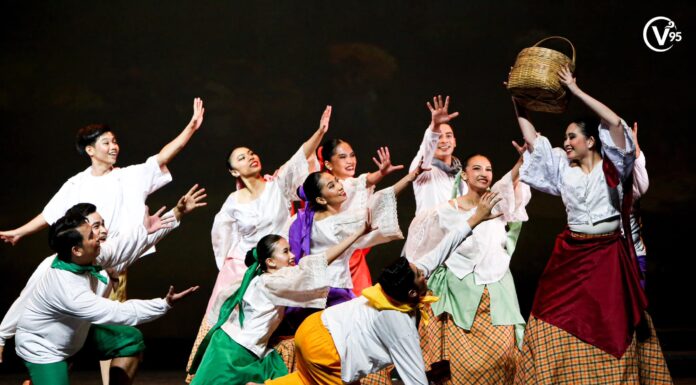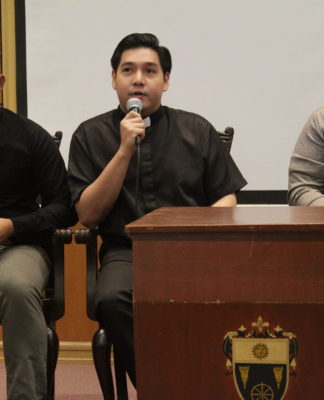SCHOOL paper editors and writers are again calling for changes to the Campus Journalism Act of 1991 to ensure that freedom of the press is upheld on campus.
The 23-year-old Campus Journalism Act has been used to suppress, instead of protect, the rights of campus journalists, College Editors Guild of the Philippines President Marc Lino Abila said before the House Committee on Higher and Technical Education (CHTE) headed by Pasig Rep. Roman Romulo last Oct. 22.
“The Campus Journalism Act of 1991, which [should be protecting] press freedom at the campus level, has serious flaws that jeopardize campus press freedom,” Abila said.
Abila claimed the CJA did not make it mandatory for all Philippine colleges and universities to establish student publications and collect fees. The law also has no penalty clause, leaving erring school administors scot-free.
Based on CEGP’s monitoring as of May this year, there have been 185 campus press freedom violations involving 54 student papers. The violations include censorship, administrative intervention, withholding of funds, libel cases, harassment, and non-collection of fees.
Kabataan party-list Rep. Terry Ridon earlier filed House Bill (HB) 1493 or “An Act Providing for the Development and Promotion of Campus Journalism,” which imposes a fine of P200,000 or five-year imprisonment on those who interfere in or restrain the work campus journalists.
Major provisions of the “Campus Press Freedom Bill” include the mandatory establishment of at least one student publication in public and private educational institutions (Section 4), mandatory collection of publication funds by the school administration during enrollment (Section 7), prohibition from withholding the release of publication funds (Section 8), and imposition of administrative sanctions for campus press freedom violations by the Commission on Higher Education (CHEd), the Technical Education and Skills Development Authority, and the Department of Education (Section 15).
But A Teacher party-list Rep. Mariano Piamonte Jr. questioned what he described as “contentious provisions” of the bill, like Sections 5 and 6.
Section 5 states that “the school administration shall provide the student publication with an office preferably located at the school’s student center and other materials and equipment necessary for its operations.” Section 6 states that a student publication should be free “from any form of administrative intervention with regard to the handling of its funds, the content of the articles the editorial board chooses to publish, the selection of its publication staff and members of the editorial board.”
“When the students enroll in any learning institution, they submit themselves to the rules and regulations of that school,” Piamonte said during the House committee hearing. “The rights inside the campus should be limited as against the rights of the school owners.”
Piamonte cited the case of Miriam College’s Chi-Rho in 1994. The publication’s literary issue caused a campus uproar due to poems and stories with sexual themes and titles like “Libog,” “Sa Gilid ng Itim,” and “Kaskas.”
“[Take for example] the case of Miriam College, because of some articles that are already considered pornographic, the students were dropped from the college and the Supreme Court upheld the school because they are already destroying its image,” he said.
According to Piamonte, school administrators and teachers still have the right to be involved with student publications since they have the responsibility to give proper guidance to all students, including campus journalists.
“You cannot claim total independence. We still consider you to be immature. You have not graduated,” Piamonte said. “If you want total independence, then you conduct your press affairs outside the school campus.”
Collection of fees
Meanwhile, University of the East President Esther Garcia said three editors “run off” the publication funds of The Dawn, prompting the administration to stop collecting funds that led to the closure of the publication.
Piamonte said that when a school collects publication fees from students, the money becomes part of the institutional fund. “We cannot claim that once the funds are collected by the school, it totally belongs to the students. It is still the school fund not student funds,” he said.
But Ridon said schools should just act as “collecting agent in favor of the student publication.”
“These funds are not school funds but are action funds of the school publication,” Ridon said. “This has been an established statute and what the students really want here is more of a clarification on particular rights they can exercise within the boundaries of academic freedom that exist in public and private schools.”
Although there were no disagreements on the importance of upholding campus press freedom, the relationship between school administrators and campus journalists still needed to be clarified, Romulo told the Varsitarian.
Also present in the hearing were editors of student publications from several colleges and universities such as Palawan State University, Quirino State University and Colegio de San Juan de Letran-Bataan, and CHEd Commissioner Alex Brillantes Jr.















